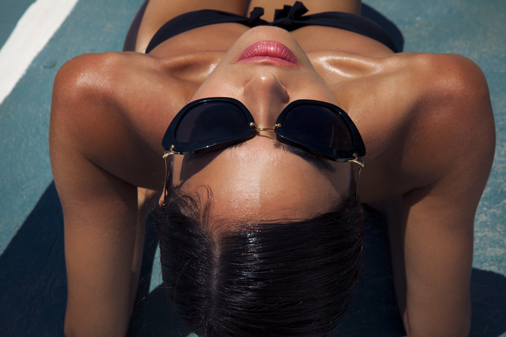Wear your shades, year-round – for your health!
Every year on June 27 The Vision Council highlights National Sunglasses Day and the importance of UV-protective eyewear, including sunglasses, to protect long-term vision health from cumulative UV exposure and dispelling myths about sunglasses to educate consumers about on how to choose the right pair.
Join the Twitter Chat: hashtag/NationalSunglassesDay
 “Just as we wear sunscreen and hats to protect our skin from the sun, we must remember to wear UV-protective sunglasses to safeguard our eyes from short- and long-term health consequences,” said Justin Bazan, OD, medical adviser to The Vision Council.
“Just as we wear sunscreen and hats to protect our skin from the sun, we must remember to wear UV-protective sunglasses to safeguard our eyes from short- and long-term health consequences,” said Justin Bazan, OD, medical adviser to The Vision Council.
A 2015 report by The Vision Council, Protection for the Naked Eye: Sunglasses as a Health Necessity, found that nearly two-thirds of Americans are unaware of the link between the sun’s UV radiation and eye diseases such as cataracts and age-related macular degeneration. This knowledge gap most likely contributes to the finding that more than 25 percent of U.S. adults rarely or never wear sunglasses, leaving their eyes at risk.
Five things consumers should be aware of when it comes to sunglasses include:
- UV is present all four seasons of the year, so protect your eyes accordingly
- UV radiation is constant and can also permeate through clouds to reach your eyes and skin. Because of this, it’s important for adults and children to wear sunglasses when it’s cloudy and throughout the year, not just in summer.
- Not all sunglasses automatically have UVA and UVB protection included
- It is crucial to look for a label, sticker or tag which indicates UV protection before purchasing a pair of sunglasses.
- You don’t have to pay a premium to get proper UV protection for your eyes
- UV protection should always be included in your glasses, regardless of price or retail location. Where price may play a factor is in sunglass frames, lens quality and/or a specific lens material, and the brand you select.
- Darker lenses don’t necessarily mean better protection
- Tint and color of sunglass lenses have no bearing on the level of UV protection. Dark lenses without UV protection can actually be worse for your eyes since they actually can let more UV rays reach your dilated eye.
- Vintage shades may be vogue, but often don’t provide proper UV protection
- They may be stylish, but they may not provide any filter from UV radiation. Be sure to buy from a reputable retailer and always make sure look for a label, sticker or tag indicating UV protection.

You must be logged in to post a comment.